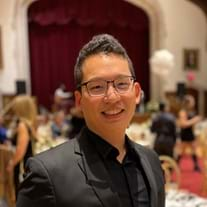
Andrew Chang, PhD
2023 Leon Levy Scholar in Neuroscience
New York University
Institution
New York University (Dr. David Poeppel)
Sub-disciplinary Category
Cognitive & Behavioral Neuroscience
Previous Positions
- BSc, National Taiwan University
- PhD, McMaster University (Advisor, Dr. Laurel J. Trainor)
Bio
Andrew Chang, Ph.D., is a postdoctoral fellow at New York University, where he works with Professor David Poeppel. He earned his B.S. degree in Psychology at National Taiwan University and his Ph.D. in Psychology from McMaster University, where he worked with Professor Laurel Trainor. His research interests span various topics in auditory cognitive science and relevant neural mechanisms. Methodologically, he combines various research methods from different aspects, including (but not limited to) psychophysics, neuroimaging (M/EEG and fMRI), computational modeling, machine learning, and motion capture. Currently, he is investigating the fundamental differences between speech and music at the acoustic, perceptual, and neural levels, and how this (dis)similarity can help individuals with communication disorders.
Research Summary
How music and speech is perceived, processed and distinguished in the human brain and its relevance for individuals with communication disorders.
Technical Overview
Music and speech are both essential, complex, and incredibly informative auditory signals for hearing-abled individuals. However, they are also fundamentally and functionally different, and while many existing studies examine the similarities of music and speech, few distinguish the two and how they are processed differently by the human brain into meaningful information. Dr. Andrew Chang plans to take a “radically reductive” approach by using mathematically generated, perceptually ambiguous, noise-synthesized audio signals with particular AM frequencies that serve as acoustic properties used to distinguish between music and speech, along with neuroimaging and machine learning approaches to identify the brain regions and neural oscillatory mechanisms involved in distinguishing music and speech. In turn, he will examine how these mechanisms are related to the communication challenges faced by patients with autism spectrum disorder (ASD), a population in which music therapy has been shown to be beneficial. Dr. Chang’s work will have both basic and clinical implications, as the identification of music and speech processing at a perceptual and neural level can provide a more solid foundation for a variety of fields including neurophysiology and cognitive sciences, and the treatment of communication disorders and the use of music for medical treatment in the ASD population and beyond.